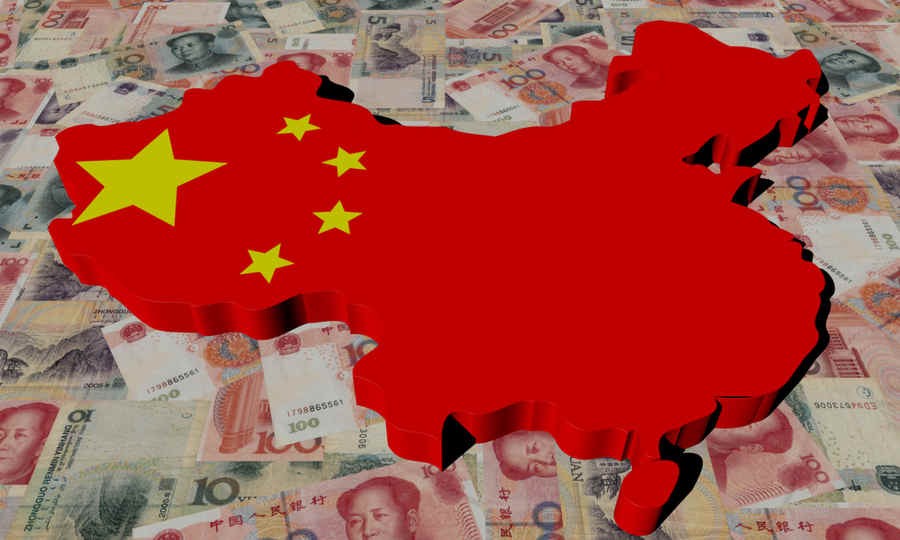I WANT
RELATED LINKS
I WANT
RELATED LINKS
RELATES LINKS
I WANT
RELATES LINKS
Services
Related Links
Use and Management of Cookies
We use cookies and other similar technologies on our website to enhance your browsing experience. For more information, please visit our Cookies Notice.
- Personal Banking
- Stories & Tips
- Grow Your Wealth
- Investment Opportunities in Chinese Equity Funds
- Personal Banking
- ...
- Investment Opportunities in Chinese Equity Funds
Investment Opportunities in Chinese Equity Funds
07-09-2021
China is the most populous country in the world and ranks as the world’s second-largest economy after the United States. The country has a very high rate of economic growth, contributed to by growth in various sectors such as technology, utilities, public transport, and many other areas. Amid the ongoing COVID-19 pandemic, China has been able to contain the outbreak well and stimulate its economy to quickly resume growth.
China can drive its economy through domestic consumption without relying on exports or tourism, allowing it to quickly enjoy a V-shaped recovery. At the same time, New China, or the modern Chinese economy, moves in line with the New Economy trend whereby its economy is driven by innovation, technology, and creativity. These factors make China appealing to investors all over the world.
Investments in China are also very attractive, with over 1,000 securities listed on the stock exchange, allowing more diversity for investors and higher liquidity. However, before making a decision to invest in China investors should learn more about the different types of Chinese stock offerings, which can be divided into the following three categories:
1. Securities listed and traded in Mainland China on the Shanghai Stock Exchange and the Shenzhen Stock Exchange: Known as A Shares, many financial firms are in Shanghai, while those in Shenzhen are mostly tech companies. Well-known companies include Ping An Insurance and ICBC Bank. The main currency used for trading is the RMB and A Shares are also known as 'Domestic Shares'.
2. Securities registered in China but traded in Hong Kong: Known as H Shares, these securities are traded in HKD with the Hang Seng China Enterprises Index ("HSCEI") serving as a benchmark that reflects the overall performance of Mainland securities listed in Hong Kong. Well-known stocks include Tencent, the giant tech company owning the WeChat application.
3.Securities registered in the United States such as Alibaba and JD.com, the world's largest e-commerce companies.

Given the variety of listed companies and markets, investors interested in investing in Chinese stocks may feel it is difficult to invest directly in Chinese stock markets. Those investors may be more comfortable investing through mutual funds as their investment will be taken care of by experienced fund managers and only require small investments. Investors can diversify their investment in all three markets.
Investment in Chinese equity funds is available for funds that focus on investing in stocks listed on Mainland China’s stock markets, the Hong Kong Stock Exchange, Chinese stocks listed on stock exchanges around the world, and funds that invest in stock markets in China, Hong Kong, Taiwan, Macao, and other locations. Both passive funds that track market indices and active funds that are proactively managed by selecting investments in individual stocks are offered. Investment in Chinese equity funds is diversified across multiple business sectors, helping spread risks for investors.
What kind of investors are suited to investing in Chinese equity funds?
1. Investors seeking to diversify their investments offshore;
2. Investors seeking to generate returns in alignment with China’s economic growth, well-known for the strong power of middle-class consumption, which is expected to continue expanding over the next 5-10 years; and
3. Investors who can tolerate a certain degree of volatility create opportunities for better long-term yields. Investing in Chinese equity funds can rank between risk-level 6 to the highest level of 8.
Major risks involving investment in Chinese equity mutual funds
1. Conflicts with the United States in terms of trade and international relations;
2.QE Tapering by central banks around the world, prompting the USD to appreciate and US Treasuries to hike, causing funds flowing out of emerging market countries back to developed countries. This phenomenon could force Chinese stock markets to make major corrections.
3. Apart from foreign exchange risk usually experienced with offshore investment, there will be risks involving changing regulatory requirements announced under unusual circumstances, preventing the repatriation of funds back into the country, which may result in investors not receiving refunds within a specified period.
4. Other risks involving politics, economy, society, market conditions, liquidity, laws, and/or restrictions of the country in which the fund invests, which may affect the value of investment units and/or liquidity of funds.
5. Investors are advised to consider diversifying their overall portfolios in addition to those concentrated in China.
For investors who believe that China will continue flourishing and view this as an opportunity to accumulate Chinese stocks, investing in China's equity funds is another interesting option. Investors may consider investing regularly on a DCA basis (Dollar Cost Average) and focus more on long-term investment. In addition, investors should allocate assets across multiple asset classes according to their risk tolerance, with appropriate portfolio rebalancing to reduce fluctuations and achieve expected returns in the long term.
More importantly, before investing in mutual funds investors should always carefully study and understand the information in the prospectus before making any investment decision. We wish you the best of luck in your investment.
Nipapun Poonsateansup, CFP®, ACC
Independent Financial Advisor, Author, and Speaker
